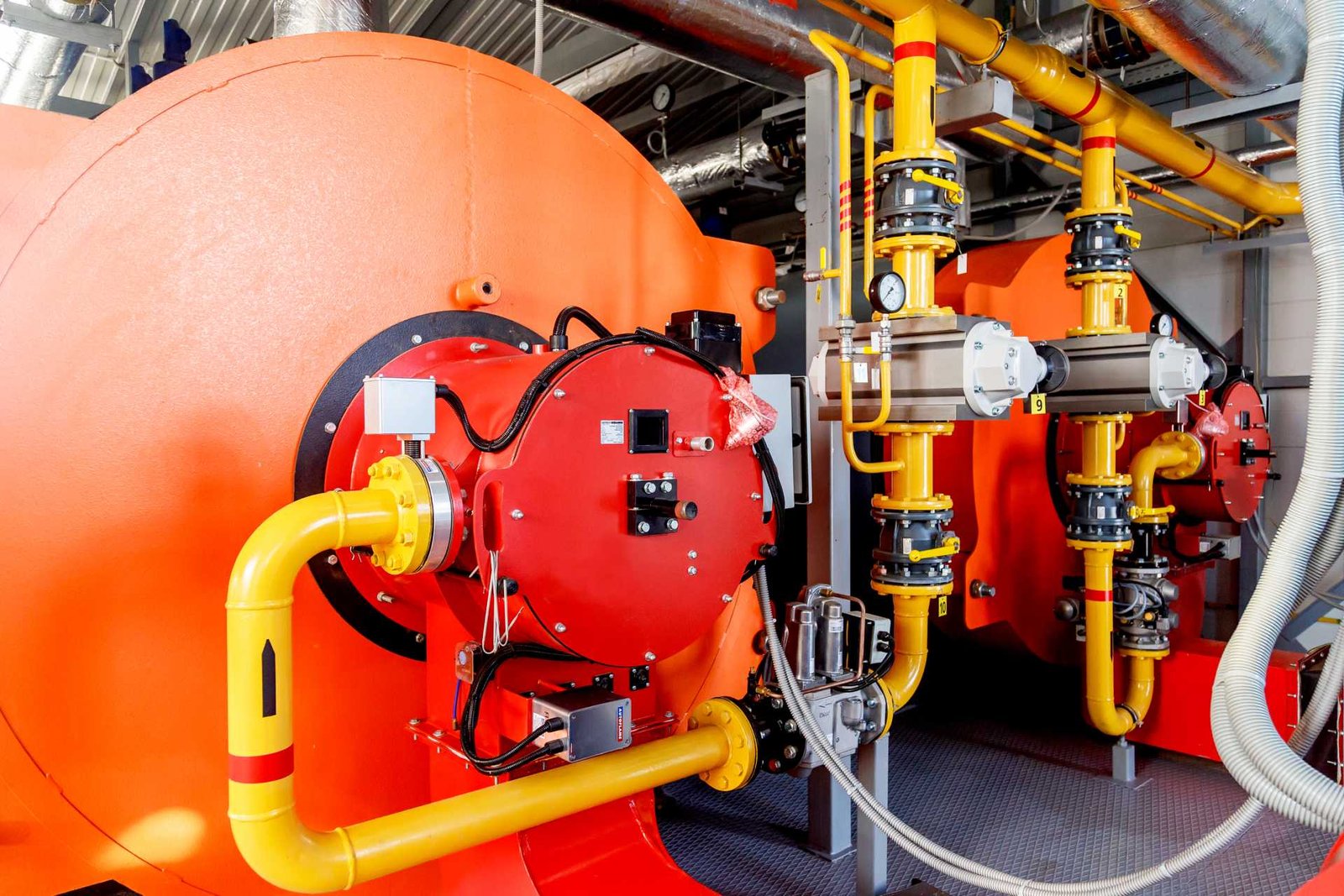
In the complex world of industrial operations, few systems are as critical—or as heavily regulated—as boiler rooms. These powerhouses of commercial and industrial facilities face an intricate web of safety, environmental, and efficiency standards that continue to evolve. For facility managers and business owners, partnering with a company that understands and ensures compliance with all relevant regulations isn't just a smart choice—it's essential for operational survival.
The High Stakes of Non-Compliance
The consequences of regulatory non-compliance in boiler room operations extend far beyond simple fines. Recent enforcement actions by the Environmental Protection Agency and Occupational Safety and Health Administration have resulted in penalties reaching into the millions, alongside forced shutdowns that can cripple operations for weeks or months.
Consider the cascading effects: a single compliance violation can trigger comprehensive audits, damage corporate reputation, increase insurance premiums, and in severe cases, result in criminal liability for responsible parties. More importantly, non-compliance often signals underlying safety issues that put workers and surrounding communities at risk.
Navigating the Regulatory Landscape
Modern boiler operations must comply with an extensive array of regulations that span multiple jurisdictions and enforcement agencies. The Clean Air Act requires adherence to National Emission Standards for Hazardous Air Pollutants, while OSHA mandates strict safety protocols for boiler operation and maintenance. State and local authorities add additional layers of requirements, often with more stringent standards than federal minimums.
Environmental regulations have become particularly complex, with new requirements for emissions monitoring, reporting, and control technologies. The EPA's boiler Maximum Achievable Control Technology standards, for instance, require specific emission limits for various pollutants and mandate continuous monitoring systems. These requirements vary significantly based on boiler size, fuel type, and facility classification.
The Safety Imperative
Safety regulations in boiler operations exist for compelling reasons. High-pressure steam systems operate under extreme conditions that can prove catastrophic when safety measures fail. The American Society of Mechanical Engineers' Boiler and Pressure Vessel Code establishes fundamental safety standards, while OSHA's Process Safety Management requirements mandate comprehensive safety programs for facilities with significant quantities of hazardous materials.
Compliance ensures that critical safety systems—from pressure relief valves to emergency shutdown procedures—meet rigorous standards. Regular inspections, proper maintenance protocols, and worker training programs required by these regulations create multiple layers of protection against potentially devastating accidents.
Environmental Responsibility and Public Trust
Environmental compliance has evolved from a regulatory burden to a business imperative. Communities increasingly expect industrial facilities to operate as responsible environmental stewards. Boiler emissions contribute to air quality concerns, and facilities that consistently meet or exceed environmental standards build trust with stakeholders and regulatory agencies.
Modern compliance programs address not just current regulations but anticipate future requirements. Forward-thinking facilities invest in technologies and procedures that exceed current minimums, positioning themselves advantageously as regulations inevitably tighten.
The Efficiency Connection
Regulatory compliance and operational efficiency are not competing priorities—they're mutually reinforcing. Many regulatory requirements, particularly those related to emissions and energy efficiency, drive improvements that reduce operating costs while meeting compliance objectives.
Properly maintained boilers operating within regulatory parameters typically achieve better fuel efficiency, reduced maintenance costs, and longer equipment life. Compliance programs that include regular tune-ups, proper combustion control, and optimization of operating parameters often pay for themselves through reduced energy consumption and maintenance expenses.
Choosing the Right Partner
Given the complexity and consequences of regulatory compliance, partnering with a company that demonstrates deep expertise in all relevant standards is crucial. The right partner brings several critical capabilities to the relationship.
Technical expertise spans understanding of federal, state, and local regulations, along with industry-specific requirements that may apply to particular sectors. This includes staying current with regulatory changes and understanding how they affect existing operations.
Practical experience implementing compliance programs across diverse facilities provides invaluable insights into what works in real-world applications. Companies that have successfully navigated regulatory challenges can help avoid common pitfalls and implement more effective compliance strategies.
Comprehensive service capabilities ensure that all aspects of compliance—from initial assessment through ongoing monitoring and reporting—are addressed by knowledgeable professionals. This includes emergency response capabilities when compliance issues arise unexpectedly.
Due Diligence in Partner Selection
When evaluating potential partners, facility managers should investigate several key areas. Professional certifications and licenses demonstrate formal recognition of expertise, while client references provide insights into actual performance and reliability.
Documentation of past compliance successes, including successful regulatory audits and violation resolution, indicates proven capability. Insurance coverage and bonding protect against potential liabilities, while comprehensive quality management systems ensure consistent service delivery.
The Investment Perspective
Regulatory compliance represents a significant ongoing investment, but the costs of non-compliance far exceed the expenses of maintaining proper standards. Facilities that view compliance as an investment in operational stability and risk management typically achieve better long-term outcomes than those that treat it as a minimally necessary expense.
Proactive compliance programs that exceed minimum requirements often prove more cost-effective than reactive approaches that address issues only when forced by regulatory action. The predictable costs of scheduled maintenance and monitoring compare favorably to the unpredictable expenses of emergency repairs and regulatory penalties.
Looking Forward
Regulatory requirements for boiler operations will continue evolving as environmental concerns intensify and safety expectations rise. Facilities that establish strong compliance partnerships now position themselves to adapt more effectively to future changes.
The integration of digital monitoring technologies, predictive maintenance systems, and automated reporting capabilities represents the future of compliance management. Partners who invest in these technologies and understand their regulatory implications provide significant advantages.
Conclusion
In today's regulatory environment, boiler room compliance is far too important and complex to leave to chance. The interconnected nature of safety, environmental, and efficiency requirements demands expertise that extends beyond basic operational knowledge.
Partnering with a company that demonstrates comprehensive understanding of all relevant regulations, maintains current expertise as requirements evolve, and provides reliable implementation support is not just a smart business decision—it's an essential investment in operational continuity and risk management.
The question isn't whether to prioritize compliance, but whether to work with partners who can ensure your facility meets all necessary requirements while optimizing performance and minimizing risks. In an environment where regulatory violations can threaten business survival, that partnership becomes one of the most critical decisions facility managers will make.








